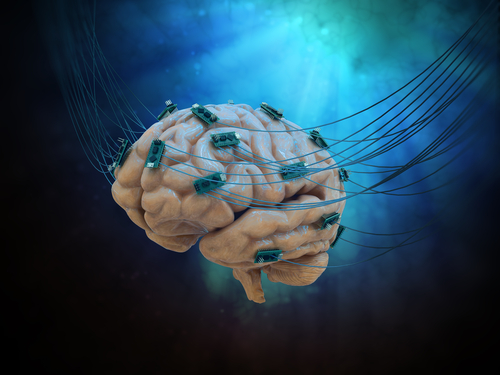Deep Brain Stimulation May Ease Some of Common Urinary Problems in Parkinson’s Patients, Study Reports
Written by |

Deep brain stimulation (DBS) can help to alleviate some urinary symptoms — such as urinary frequency, urgency, and incontinence — in Parkinson’s patients, and is particularly helpful to women, a large study reports.
The study, “Clinical study of the effects of deep brain stimulation on urinary dysfunctions in patients with Parkinson’s disease,” was published in Clinical Intervention in Aging.
DBS involves a surgical procedure in which very fine wires are inserted into the brain to electrically stimulate areas responsible for movement control and, in this way, adjust neuronal activity within those brain regions. This treatment approach is indicated for Parkinson’s patients whose motor symptoms do not respond well to commonly used parkinsonian medications.
“However, the effectiveness of DBS in treating urinary dysfunctions in [Parkinson’s] patients has not been widely investigated,” the researchers noted.
Bladder problems are frequently observed in Parkinson’s patients. Urinary symptoms such as urgency, frequency, nocturia (excessive urination at night), dysuria (pain or discomfort when urinating), and incontinence can also considerably impact patients’ quality of life.
Importantly, the brain region that is stimulated by DBS for proper motor control, called the subthalamic nuclei, is also involved in controlling the bladder.
Researchers at the Capital Medical University in China assessed how deep brain stimulation might affect Parkinson’s-related urinary problems across patients and between the sexes.
Their study enrolled 416 people (307 men and 109 women; average age of about 61), all being treated with lepodova and with urinary symptoms for an average of 5.1 years. Nocturia was the most common, reported by 63.7% of patients; followed by urinary frequency (55.8%); residual urine (43.8%); urinary urgency (38.0%); dysuria (36.1%); and urinary incontinence (17.8%).
Of these participants, 220 (160 men, 60 women) underwent deep brain stimulation for disease symptoms that failed to improve with medication. Quality of life and urinary symptoms were evaluated using a set of validated assessment scales. No specifics were given about the stimulation treatment’s duration and how long after treatment urinary symptoms were assessed.
Bladder storage problems, and symptoms like urinary frequency, urgency, and incontinence all significantly eased in patients given deep brain stimulation compared to those who were not. However, the most common complaint — that of nocturia — feelings of residual urine, and dysuria “were not improved significantly,” the study reported.
Interestingly, the team found sex-related differences in the magnitude of DBS effects.
“The outcomes of DBS treatment in improving urinary dysfunctions in female patients with PD [Parkinson’s disease] are far superior to those in male patients, as symptoms during urination and bladder storage were both significantly improved in the females,” the researchers wrote. These outcomes included maximum urinary flow rate, the ability of bladder muscle to distend to retain urine, and complete bladder emptying.
Among possible reasons for this gender difference were men with enlarged prostates. “Hyperplasia in the prostate can also cause urinary dysfunctions, which could not be ruled out in our study,” the team wrote.
Quality of life with the stimulation also improved for both sexes, but only significantly among women.
The researchers stressed that multicenter studies with larger samples are necessary to extend and confirm their findings.


